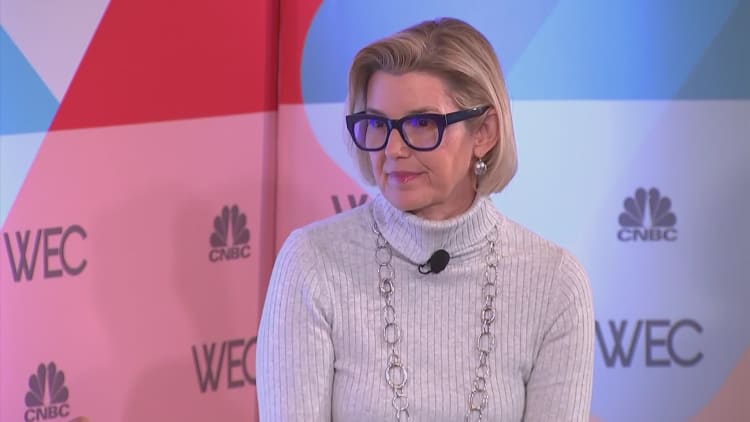AleksandarNakic | E+ | Getty Images
Women have a complicated relationship with money.
That may start with how they feel about their finances. While men most commonly say they are “hopeful” when it comes to money, women’s No. 1 word for their financial feelings was “stress,” according to a 2023 Fidelity Investments survey.
“Women’s No. 1 source of stress is money,” Sallie Krawcheck, CEO of Ellevest, an online investing platform for women, told CNBC in a recent interview.
“Women spend a week-plus [each] year worrying about money,” she said.

There are a few reasons why women’s financial concerns are more acute.
For starters, overall, women have 30 cents of wealth for every dollar white men have, Krawcheck said. Consequently, women’s top goal is to shore up the wealth they’re lacking, while their second priority is taking care of their families, she said.
In contrast, men’s No. 1 priority is saving for retirement.
Other factors hold women back financially, according to Cary Carbonaro, a certified financial planner and director of woman and wealth services at ACM Wealth.
A so-called “good daughter penalty” makes it so that care for the entire family often falls on her. When it comes time to retire, she often has less money than men, but with a longer life expectancy and higher health-care costs.
Start small: ‘You don’t have to do everything all at once’
It is possible for women to turn their emotions — and financial progress — around. A recent Ellevest survey found 86% of women say investing makes them feel powerful.
But those who do not take a proactive role in their financial lives face greater risks.
“I work with mainly women, and by the time they get to me, it’s usually because they’re in a crisis, like a death, a divorce, a disability,” Carbonaro said.
Improving women’s finances now — and avoiding a future calamity — does not have to be overwhelming.
A step-by-step approach works best, according to Stacy Francis, a certified financial planner and president and CEO of Francis Financial in New York. She is also a member of CNBC’s Financial Advisor Council.
“You don’t have to do everything all at once, because I’ll be honest, it can be overwhelming and intimidating,” Francis said.
The first step is to aim to “get back to neutral,” Francis said. If you have credit card debt or high interest loans, paying them down with absolute passion and devotion should be your top goal, she said.
The next step is to establish an emergency fund worth three to six months of your monthly spending.
“That is the airbag, the safety net,” Francis said. “That’s going to protect you from having to use high interest, dangerous credit cards for some of these unexpected expenses.”
Once you have an ample emergency fund, it’s time to turn to long-term goals, Francis said. That includes saving for a house, ramping up your 401(k) plan deferral to at least get the employer match or funding another retirement account such as an individual retirement account.
Use the new year to reset
After you hit those goals, it’s “rinse and repeat,” Francis said, or continuously minding your debts, savings and long-term planning.
Ultimately, the goal is to put away 20% of what you earn. But it’s not easy to get there, admits Francis, who said it took her 10 years of gradually increasing her savings to reach that level.
But even ramping up savings by 1% or 2% per year is progress, she said.
As the year comes to a close, that brings a couple of opportunities for women to reset their financial circumstances.
Plan to ask for a raise at work in the new year where appropriate, Francis said.
Also revisit your expenses for 2023 by taking a look at your credit card and bank statements.
“Look at it without judgement,” Francis said, and see where you may be able to cut back to increase your debt pay down and savings rate.
Don’t miss these stories from CNBC PRO:

